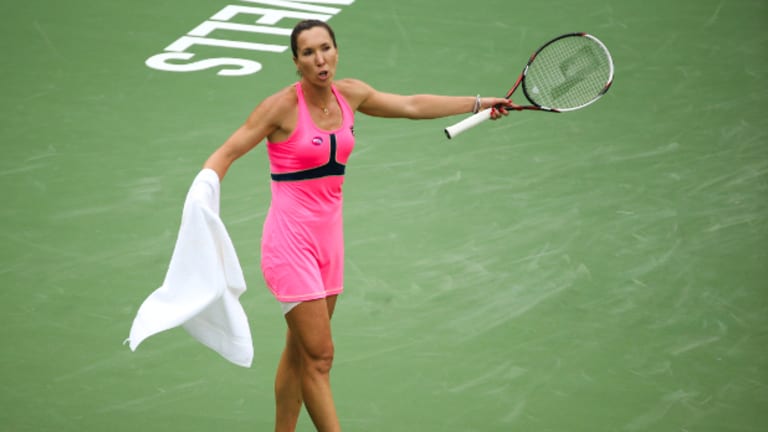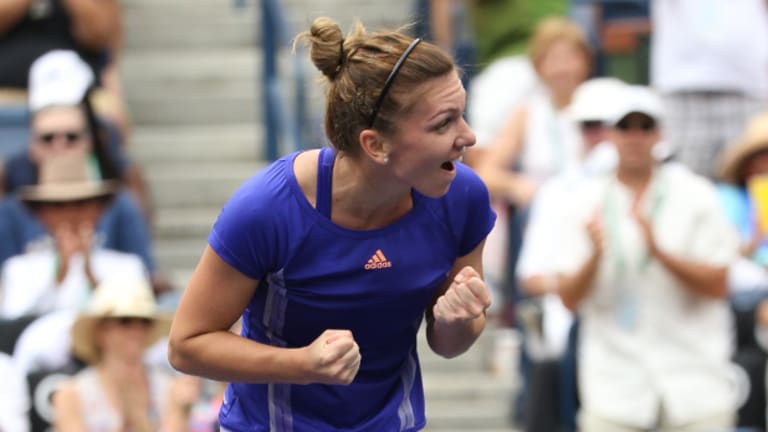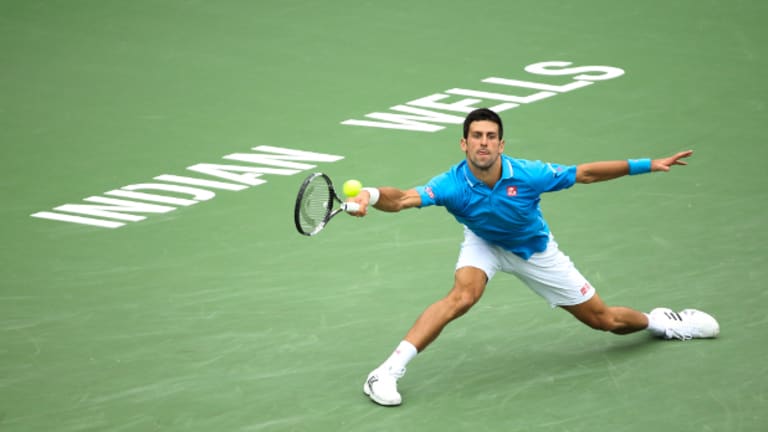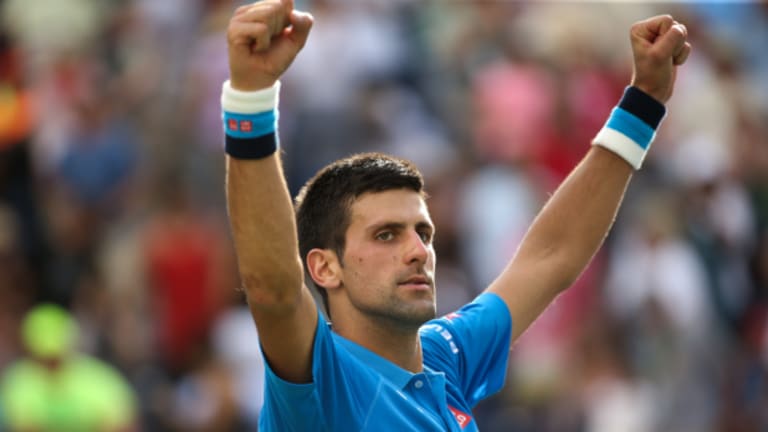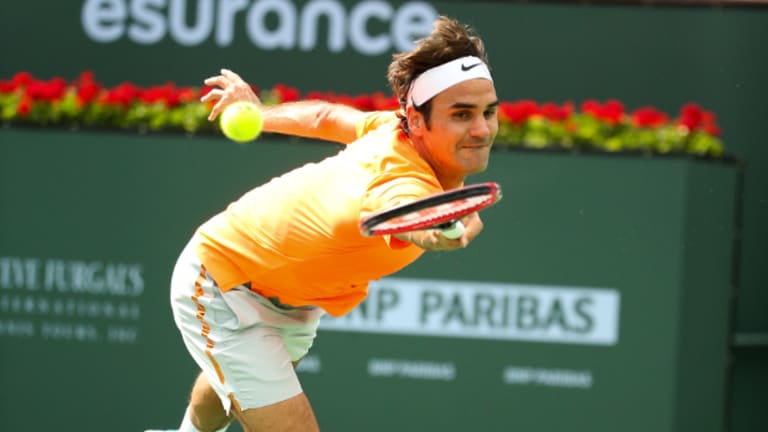Novak Djokovic knew exactly what Jankovic, his fellow Serb, was feeling today. Like JJ, Djokovic had run away with the first set against Federer; it was the first time in six matches that he had won the opening set against his rival, and he did it crisply and convincingly from both sides of the net. Djokovic won 100 percent of his first-serve points, and 71 percent of points on Federer’s second serve. He broke at 3-2 in the first with a fabulously timed crosscourt backhand pass at full stretch.
By the time Djokovic was up 4-3, 30-15, in the second set, it appeared as if match and his fourth title at Indian Wells were all but his. He won that point with a down-the-line backhand winner, which had come a few seconds after an inside-out forehand winner. Djokovic seemed to be gaining in confidence; little did anyone know that he was about to lose all of it.
It began with a great piece of scrambling Federer defense, which turned into a bullet forehand winner, for 30-30. The crowd, which had been waiting for an hour for any reason to erupt on Federer’s behalf, duly went berserk. The applause lingered in the air; by the time it had dissipated, the momentum had swung completely in Federer's direction. Djokovic double faulted to go down break point, and the applause came back. When he put a forehand into the net on the next point, the crowd erupted again. At the start of the next game, Djokovic responded with a sarcastic thumb’s up to the audience. I have to say, I understood the sentiment. I’ve seen plenty of pro-Federer crowds, but this was the most anti-Federer’s-opponent audience I’ve ever heard.
Yet 20 minutes later, Djokovic still had the match, literally, in hand. He stood to serve at 5-4 in the second-set tiebreaker; two points and the title was his. Instead, Djokovic, world No. 1, missed four straight serves to hand Federer a set point. When he lost that point as well, Djokovic sat down on the sideline and picked up something to drink. His hand was shaking so badly that he could barely get the bottle to his mouth.
Yet Djokovic still won. He stopped Federer’s momentum in its tracks by breaking him in the second game of the third set. After that, he visibly relaxed and went back to controlling play with his serves, returns, ground strokes, and legs. This time it was Federer’s turn to double-fault at a key moment—2-3, break point—and lose command of his shots. By the time Djokovic coolly held for a 6-3, 6-7 (5) 6-2 win, it was hard to remember that his second-set implosion had ever happened.
